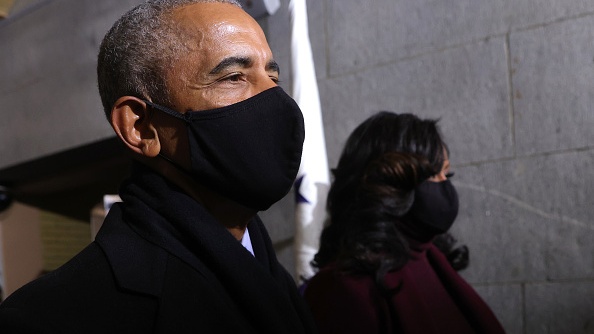Barack Obama said he faced certain “institutional constraints" in speaking on the killings of Black Americans during his presidency.
On Wednesday, the former president spoke during a forum hosted by his foundation, My Brother’s Keeper Alliance. His remarks centered on the rise of activism in 2020 driven by the police killing of George Floyd, The Hill reported.
During the forum, Obama also stated that with the Department of Justice actively investigating certain high-profile cases involving Black Americans, he didn’t want to interfere with their work, Politico reported.
“I did not in any way want to endanger their capacity to go in, investigate and potentially charge perpetrators, which meant that I could not come down or appear to come down decisively in terms of guilt or innocence,” Obama said.
He made a point to highlight the cases being investigated at the time including that of Alton Sterling and Trayvon Martin.
Obama said he did everything he could to speak on the case with Trayvon.
"There were some frustrations for me in my institutional role," Obama said speaking to the unrest that displayed in Ferguson, Missouri, after a white police officer fatally shot Michael Brown, 18, in 2014.
Following Brown’s death, Obama did use an executive order to create the President’s Task Force on 21st Century Policing which makes recommendations to the president on how to reduce crime and increase public trust, such as building community relationships with law enforcement, according to the National Association for Civilian Oversight of Law Enforcement.
Obama also noted that he did not have congressional and gubernatorial majorities which he would have needed to move forward with reforms on social justice.
“We didn’t win a bunch of state legislators back,” he said. "All the reform initiatives that we were coming up with, and the ideas that had been generated, we weren't able to translate into as bold a set of initiatives as I would have wanted."
During the panel, Obama also spoke with Mayor Ras Baraka of Newark, N.J., who spoke about police reform across the city. They shared thoughts on the significance of cities that focus on violence prevention and trauma recovery.
“We have to change what our viewpoint is of public safety and get people to understand that there’s more ways for us to reduce crime and violence,” Baraka said. “We can reduce crime and also reduce arrests, which means there’s no real causal relationship between arrests and a reduction of violence and crime.”

